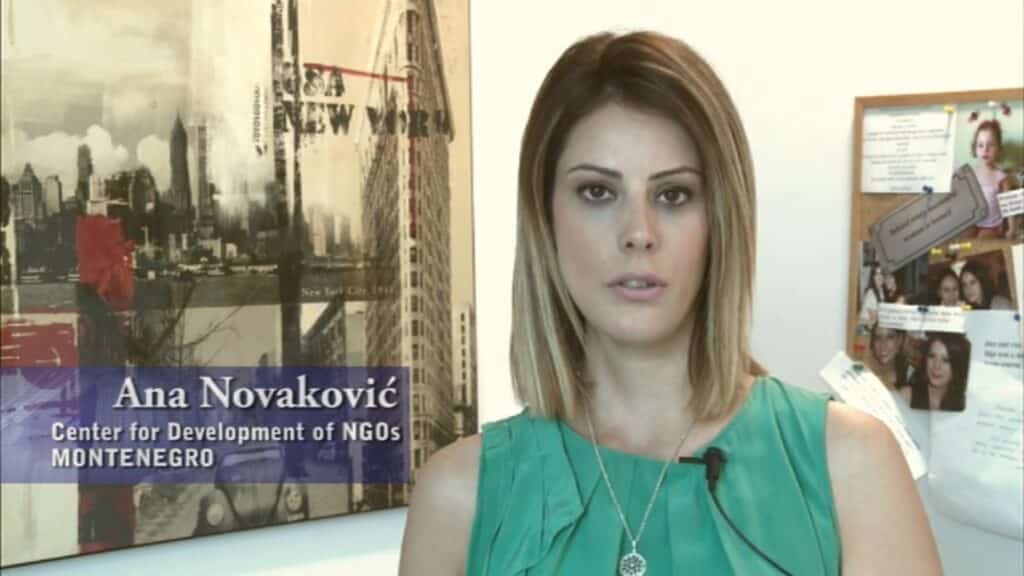The Balkans is among the most difficult regions in Europe to be an activist, an independent journalist or a dissenter. Newspaper pages in Bosnia, Kosovo, Serbia and other emerging democracies routinely are filled with reports of harassment, funding cuts, lawsuits, prosecutions, threats and occasionally violence against government watchdogs and critics.
The civic space in Southeast Europe is narrowing due to a range of worrying factors, a new report released in July finds. Throughout the region last year, severe restrictions were imposed on freedom of assembly and expression, public funding and project opportunities were cut, and very few legal changes were introduced to improve the enabling environment for NGOs. Groups were not properly engaged in the COVID-19 response, the report concluded, and a lack of tax incentives continues to deter companies and people from donating to civil society organizations.
Along with insecurity and fear, such a landscape also nurtures solidarity and strength. These are the hallmarks of activism and independent journalism in the region, and they are the driving motivation of the Balkan Civil Society Development Network. Founded in 2001, the Network is a leading capacity-builder of NGOs in a place where activists think regionally and act locally.
One of the Network’s leaders is Ana Novaković, the long-time executive director of one of Montenegro’s oldest and most influential NGOs, the Center for Development of Non-Governmental Organisations (CRNVO).
I caught up with Novaković while she was on the road – which she often is – leading training sessions on activism and campaigning in Kolasin, a small village an hour’s drive north of the Montenegrin capital of Podgorica.
“What we see in the region is that the most prominent NGOs have remained the most active for many years. What we have not yet achieved is to spread the circle wider. It’s still the same group of people,” says Novaković, who has led coaching sessions in 15 Montenegrin cities over the past decade. She says apart from the well-established groups, people who are new to the world of activism have a lot to learn.
“They need advocacy skills, because they lack the skills to efficiently advocate for laws and policies to be changed. Every training is followed by concrete outputs. We prepare advocacy plans with them. We are investing in them. We push them to follow through on what we prepared.”
“My conclusion is that they always are motivated when they finish the training. They want to be professionally engaged,” said Novaković. “What they need is permanent mentoring for entering into public policy.”
Planning and desire is not always enough, though, Novaković says. “Activism requires people to be brave. You have to be brave enough to be in opposition to the authorities, and stand in front of them and say. ‘You are not doing your job right’. It’s a very dangerous job. You will face smear campaigns. Your funding will be cut.” Some officials go so far as to meet with donors and pressure them to stop funding certain NGOs, Novaković said.
A keen observer of journalism, Novaković had some strong words for the region’s mainstream media. “We have to work a lot with media, but they are mostly lazy people. It is very, very hard to work with them. Most journalists have contact with same 10 people. They say they don’t have time to look for new contacts. They write critical articles about the government, but they are not willing to research or expand their contacts.”
She also criticized social media as an activism tool. “We are struggling with this. Posting their opinions on Facebook or Twitter has become the main tool for many activists. It is becoming more of a challenge to explain to them that posting is not very effective. Social networks can never be a substitute for traditional advocacy techniques. I am only a fan of traditional communication. I use traditional media and communication with elected leaders.”
In a bright spot in the Balkans, a new report found some improvements in North Macedonia. Organizational capacity has improved due to more volunteerism and the better use of technology, and NGOs’ public image improved following positive media coverage and citizens’ growing recognition of their positive role in society.
